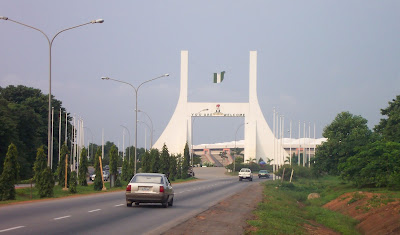Russia and Qatar To Host 2018 and 2022 World Cup
The world’s biggest sporting event continued its spread to new corners of the globe Thursday as Russia and Qatar were named as hosts of the 2018 and 2022 World Cup soccer tournaments.
The fallout from the announcements in Zurich included a setback in soccer development for the United States, which lost its attempt to host the 2022 World Cup despite having an apparently superior technical bid. That tournament was awarded instead to Qatar, the tiny oil-rich nation in the Persian Gulf, meaning the World Cup will make its inaugural appearance in the Middle East.
“We go to new lands,” Sepp Blatter, the president of FIFA, the sport’s world governing body, told Reuters. “Never has the World Cup been in Russia and Eastern Europe, and the Middle East and Arabic world has been waiting for a long time. So I’m a happy president when we talk about the development of football.”
FIFA is an insular body, frequently criticized for its lack of transparency. Thursday’s votes by FIFA’s executive committee were conducted in secret. It was impossible to discern fully the motives of Blatter and his colleagues.
Some soccer officials believe Blatter is angling for a Nobel Peace Prize, having now orchestrated the awarding of the World Cup to South Africa in 2010, and soon to Russia and the Middle East, even if his chances of winning such an award might seem remote.
Surely, Thursday’s votes reflected in part some murky internal FIFA politics. No doubt, too, Blatter has some sincere interest in taking his sport’s grandest spectacle to all parts of the world.
The votes came amid recent news media accusations of corruption involving 6 of the 24 members of FIFA’s executive committee. Two were barred from voting. Some observers called for a delay in the votes, saying their legitimacy had been compromised by accusations of vote selling.
American soccer officials had hoped to prevail with a bid that promoted the country’s diversity, the potential for record attendance and record profits for FIFA, and the fact that all stadiums and necessary infrastructure were already built.
But perhaps FIFA officials felt they had sufficiently assisted the United States by giving it the 1994 World Cup.
And some observers felt that American bid officials lacked passion in explaining how a second World Cup would expand the game in the United States, which has not fully embraced the sport. FIFA had also expressed some concerns about a lack of federal government guarantees, one apparently having to do with its tax liability in the United States.
Russia proposed to host the tournament in 13 cities grouped in four clusters. And Putin has said that visitors will not need travel visas. Match tickets will apparently serve as visas, as they did when the 2008 Champions League final was held in Moscow.


Comments
Post a Comment